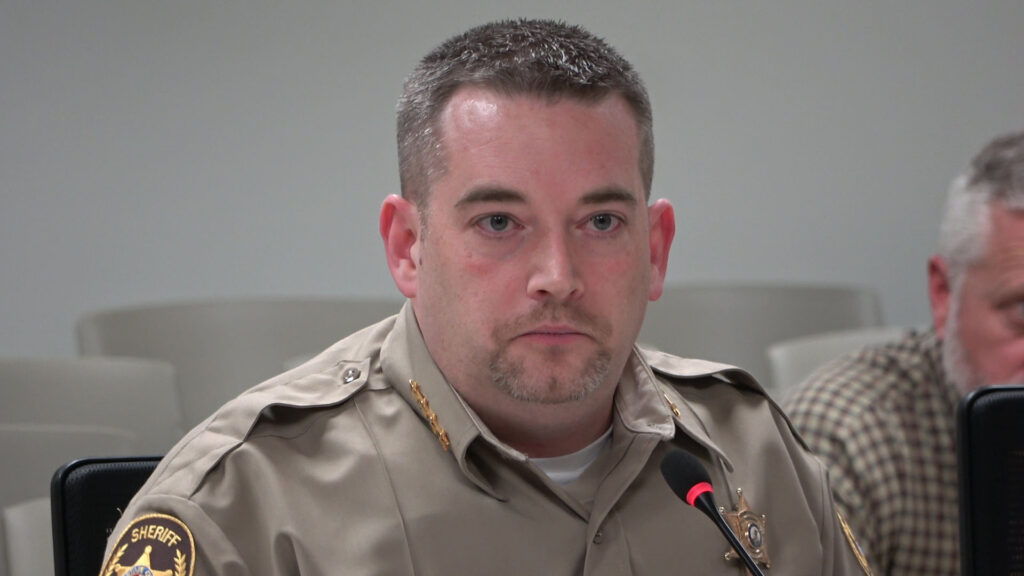
Just months into his first term, which began in 2018, Champaign, Illinois County Sheriff Dustin Heuerman seemingly engaged in a series of unlawful activities regarding free speech and public records laws.
In 2019, Check CU Founder Christopher Hansen learned that several County officials, including Sheriff Heuerman, were blocking users and deleting/hiding content on various social media accounts used for public business. Such conduct by public officials on public forums is unconstitutional – decided in the Knight First Amendment Institute v. Trump case, after President Donald Trump blocked members of the public from his Twitter account.
In addition to the two or more Champaign County Sheriff social media accounts that were put in place before his first term in office, Heuerman was running at least three other social media accounts which contained public records. Typical posts contained images and descriptions of Heuerman in uniform, in public facilities, performing public duties, during working hours, and were typically posted during working hours. Posts often contained images and descriptions of other public officials, public employees, and related public duties.
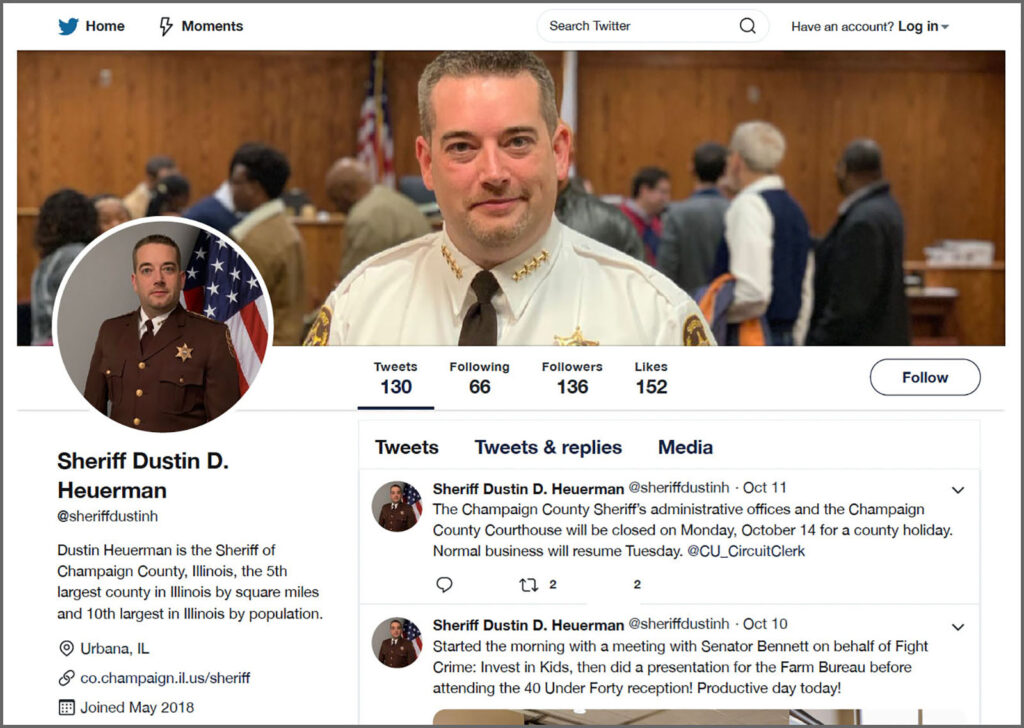
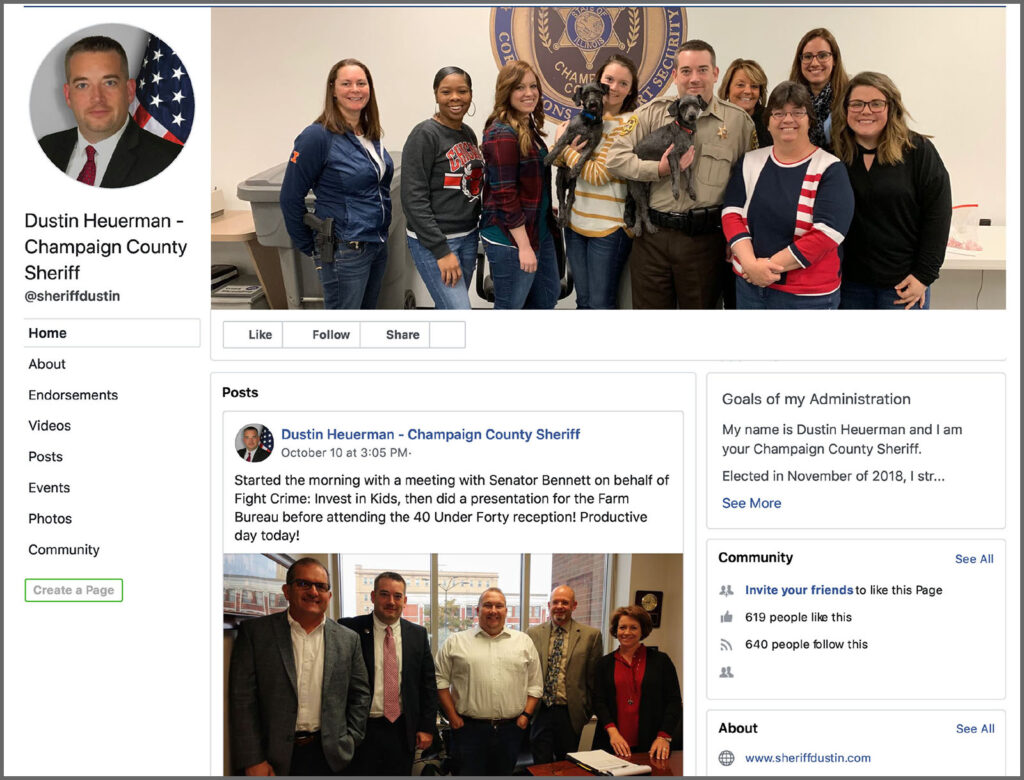
According to the Illinois Secretary of State, “Social media posts are considered public records if: Posts are made on an official public agency account or on a private account that is being used to distribute information for that agency to the public. Not included are private accounts of public employees that are not used as part of their job. If a private account is used to conduct government business, then it becomes public and is subject to FOIA and the Local Records Act.”
On October 11th, 2019, Hansen sent a Freedom of Information Act (FOIA) request to Champaign County asking for any deleted/hidden social media content and lists of blocked users. The request sought responsive records for all County social media accounts used for public business, and Hansen specifically cited several URLs related to Sheriff’s accounts.
The records request was sent to the office of Champaign County Clerk, Aaron Ammons, with an expectation that the responsive records would be properly assembled from whomever possessed them – state law requires every member of a public body to route any request for records to the relevant Freedom of Information officer or designee.
Chief Deputy Clerk Angela Patton responded to the request on October 16th, indicating that there were no social media records hidden from public view and that there were no blocked users. However, Patton’s response was limited only to the County Clerk’s Office. Five days later, Patton said that records related to other Champaign County accounts would have to be obtained by sending numerous FOIA requests to different County departments.
However, within weeks of making contact with Clerk Ammons’s Office, Sheriff Heuerman had begun deleting records from his social media accounts and he deleted or disabled two accounts entirely. Since Hansen had not yet made any direct contact with the Sheriff at this point, it seems a near certainty that Ammons’s office had communicated with Heuerman about the FOIA request, but instead issuing an official response to the request, Heuerman decided to destroy/conceal any responsive records.
Check CU has obtained emails between Dustin Heuerman and Aaron Ammons which show that they held a lunch meeting at Black Dog Smoke & Ale during business hours in early November, 2019, around the time that Heuerman destroyed/concealed the social media records. Heuerman and Deputy Clerk Patton also appear to be on very friendly terms with one another.
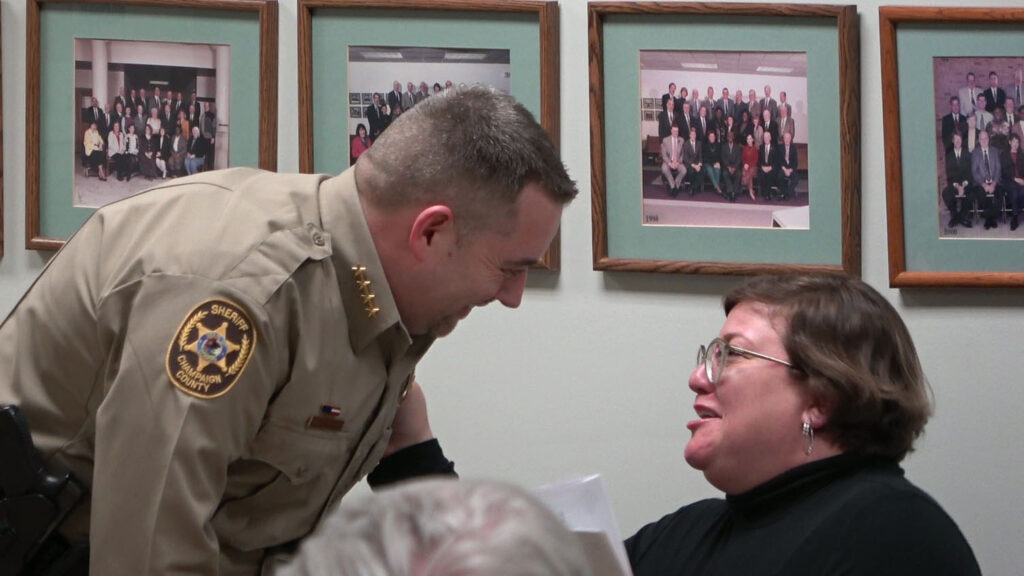
In January of 2020, Hansen sent a new FOIA request seeking the same social media records. This request was sent directly to the Sheriff’s Office and, in addition to seeking hidden/deleted records and blocked user lists, sought documents related to the retention and deletion of social media records.
Lieutenant Curt Apperson responded to the records request, first issuing an extension for time to respond, then providing a response that contained very few documents. Apperson indicated that the Sheriff’s office only had two social media accounts, and he did not acknowledge the existence of Heuerman’s other accounts. Apperson could not provide any applications to dispose of records related to social media accounts.
Willful and intentional failure to comply with FOIA is a violation of state law and can be met with civil penalties. Tampering with public records is covered under 720 ILCS 5/32-8 and 50 ILCS 205/4. Any person who knowingly and without lawful authority alters, destroys, defaces, removes or conceals any public record commits a Class 4 felony.
In summary:
- Champaign Count Sheriff Dustin Heuerman maintained multiple social media accounts which contained content clearly meeting the Illinois Secretary of State definition of public records.
- Heuerman violated federal law by blocking members of the public from social media accounts displaying public records regarding official duties of the Sheriff.
- The Champaign County Clerk’s Office failed to properly forward a records request to the Sheriff, but Heuerman was apparently made aware of the request via back channels.
- Within one to three weeks of the original records request, Heuerman destroyed or concealed hundreds of records which were directly responsive to the records request.
- In violation of the Local Records Act, Heuerman destroyed or concealed public records without approval by the Local Records Commission.
Heuerman deleted his official Sheriff’s account at www.facebook.com/sheriffdustin immediately after Hansen’s records request in 2019, and the account remained dormant for more than a year. However, the same URL is now active again and leads to Heuerman’s re-election campaign page. This raises even more questions about election law, which prohibits the use of public resources for campaign purposes.
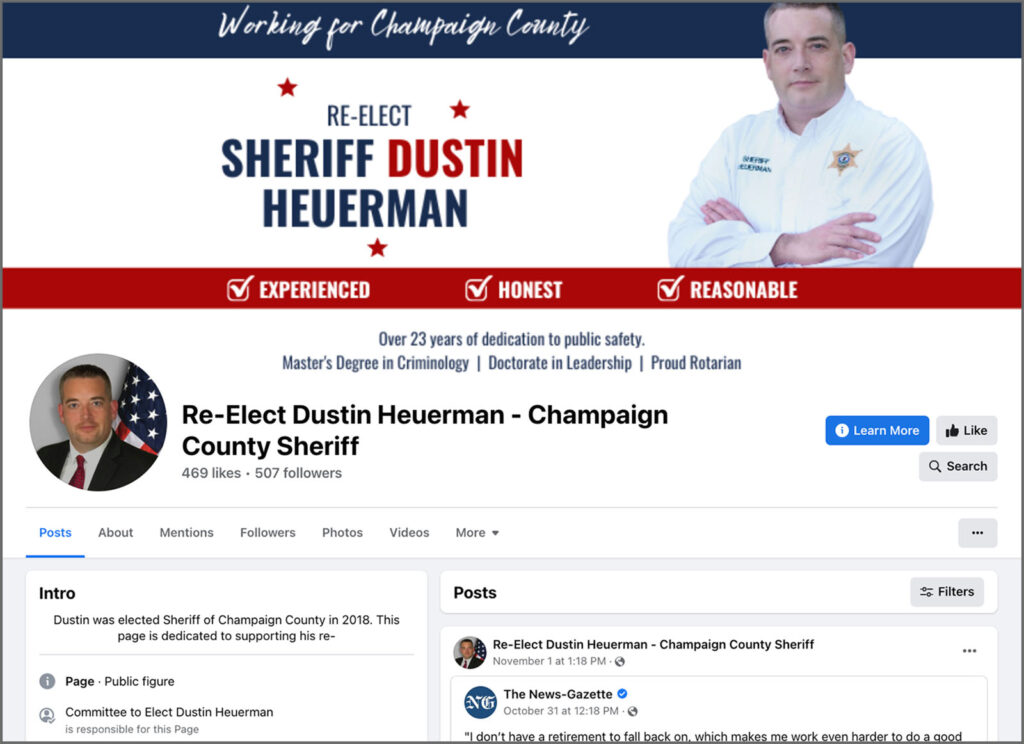

18 U.S.C. 1512 involves witness tampering/harassment/intimidation and includes destruction of evidence. This isn’t legal advice but it is a nifty law to know for filing criminal reports with the FBI, Illinois State Police, US Marshals, and any other relevant agencies. Plus if you have a lawyer it may be worth articulating that specific law to them.